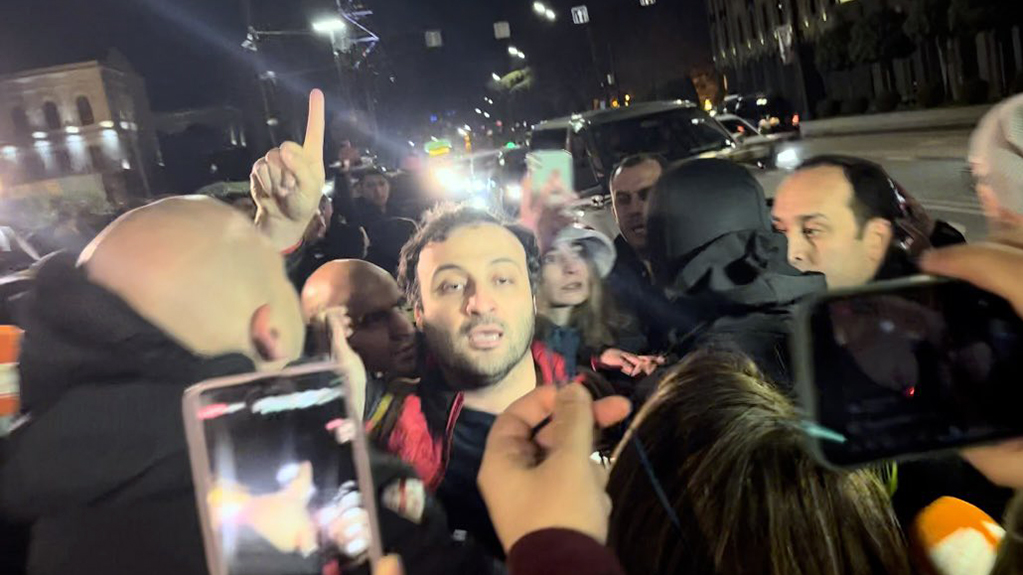The Tbilisi City Court recognized journalist Zurab Vardiashvili, director of the online publication Publika as an administrative offender and issued him with a 2200 GEL fine.
News
The journalist was detained on March 2nd, during a public rally against the Russia-sourced “foreign influence agent” law, for minor misconduct and police disobedience, before being released in about 2 hours. Tbilisi City Court reviewed the case almost a month after the arrest, on Math 31st, at 2 a.m. Case judge Nino Scherbakov announced a verdict on April 18th.
Zurab Vardiashvili was arrested on Chitadze Street, adjacent to the Parliament building, by the order of Vazha Siradze, the director of the police department, simply because he called him a “traitor”. During the arrest, one of the senior police officials and uniformed policemen shoved Vardiashvili into the vehicle of the Ministry of Internal Affairs.
According to Publika, the police violation report stated that Zurab Vardiashvili “swore loudly, used foul words, and did not obey the police's repeated legal request to clear the road”. Vardiashvili does not consider himself guilty.
During the trial, the Ministry of Internal Affairs could not present any evidence of the journalist's wrongdoing, except for the false testimony of the police inspector. On the other side, Vardiashvili's lawyer showed the judge the video footage shot by another journalist, which depicts the illegal arrest order of the journalist by the Director of the Police Department, Vazha Siradze, whom himself is shown using excessive force and exceeding his authority.
The Special Investigation Service, which is responsible for the investigation of crimes committed against journalists, was also addressed regarding the illegal detainment of Zurab Vardiashvili and the use of physical force against him.
The agency officially started an investigation, but even after a month and a half, no one was implicated or charged. It is unknown whether the Special Investigation Service interrogated the Director of the Police Department, Vazha Siradze, on whose orders dozens of demonstrators were illegally detained on the same day and at other demonstrations against Russian law, but despite the lack of evidence, none of them were acquitted by the court.
On March 2, a total of 36 protesters were arrested near the Parliament Building, on charges of petty disorder and disobedience to the police. In addition to Zurab Vardiashvili, journalist Beka Jikurashvili, who works for Tabula publication, was also among those arrested. He also denies charges. The judge similarly fined Jikurashvili 2200 GEL.
The so-called Russian law, which obliged non-governmental and media organizations that are financially independent from the government to register as “agents of foreign influence” and whose goal was the complete suppression of independent public organizations in the country, was adopted by Georgian Dream in the first reading on March 7. On the same day, tens of thousands of people came out in Tbilisi streets in protest of this decision. Demonstrators demanded the repeal of the Russian law. The government dispersed the protest by using suffocating gas, tear gas, water cannon and pepper spray. A multi-thousand rally was held on March 8, which was again dispersed by the government. The special forces chased the demonstrators through the streets throughout the night, detaining and beating them. After the brutal crackdown, the protesters smashed the vehicles of the Ministry of Internal Affairs and set them on fire. One of the demonstrators, Zaza Bighiashvili, lost his sight in one eye as a result of the injury sustained during the raid.
As a result of unrelenting mass protests and unprecedented international pressure, Georgian Dream retracted the Russian law in the second reading at the plenary session held on March 10.















